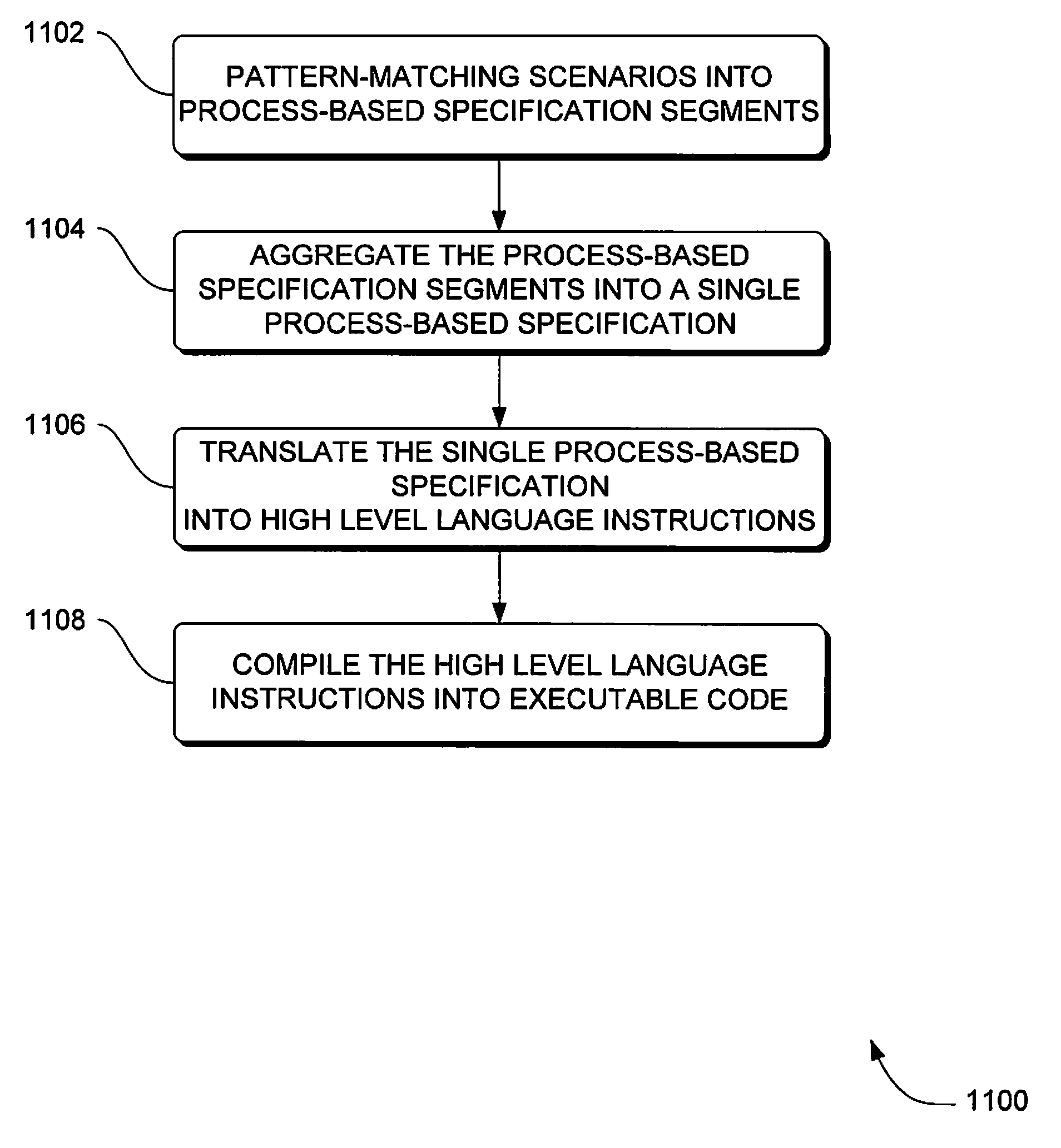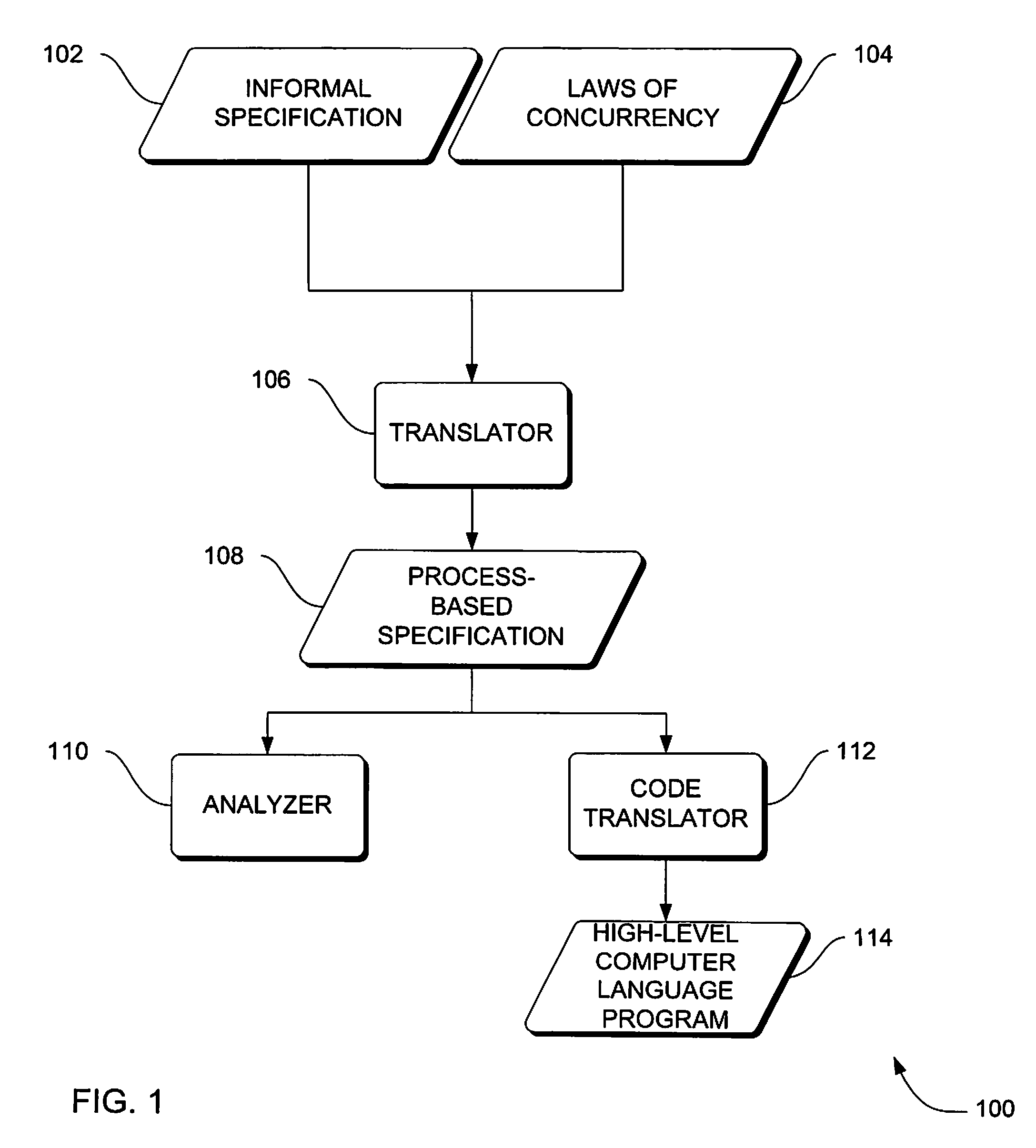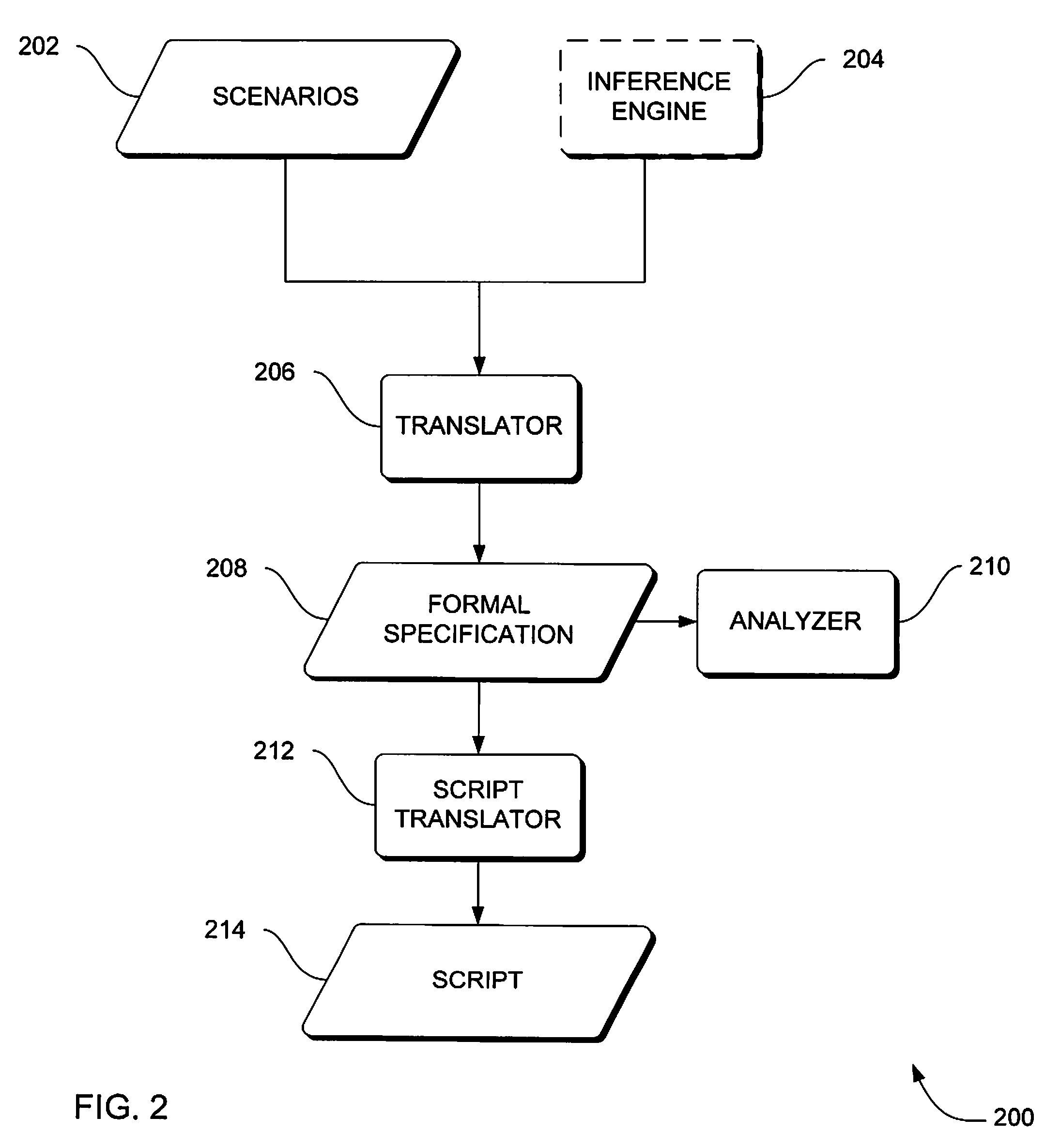Systems, methods and apparatus for pattern matching in procedure development and verification
a technology of pattern matching and procedure development, applied in the direction of source code generation, instruments, etc., can solve the problems of inapplicability of satellite systems, inability to achieve high dependability of complex systems in general, and inability to fully automate general purpose approaches covering all domains
- Summary
- Abstract
- Description
- Claims
- Application Information
AI Technical Summary
Benefits of technology
Problems solved by technology
Method used
Image
Examples
Embodiment Construction
[0045]In the following detailed description, reference is made to the accompanying drawings that form a part hereof, and in which is shown, by way of illustration, specific embodiments which can be practiced. These embodiments are described in sufficient detail to enable those skilled in the art to practice the embodiments, and it is to be understood that other embodiments can be utilized and that logical, mechanical, electrical and other changes can be made without departing from the scope of the embodiments. The following detailed description is, therefore, not to be taken in a limiting sense.
[0046]The detailed description is divided into six sections. In the first section, embodiments of a system level overview are described. In the second section, embodiments of methods are described. In the third section, embodiments of the hardware and the operating environment, in conjunction with which embodiments can be practiced, is described. In the fourth section, particular CSP implemen...
PUM
 Login to View More
Login to View More Abstract
Description
Claims
Application Information
 Login to View More
Login to View More - R&D
- Intellectual Property
- Life Sciences
- Materials
- Tech Scout
- Unparalleled Data Quality
- Higher Quality Content
- 60% Fewer Hallucinations
Browse by: Latest US Patents, China's latest patents, Technical Efficacy Thesaurus, Application Domain, Technology Topic, Popular Technical Reports.
© 2025 PatSnap. All rights reserved.Legal|Privacy policy|Modern Slavery Act Transparency Statement|Sitemap|About US| Contact US: help@patsnap.com



